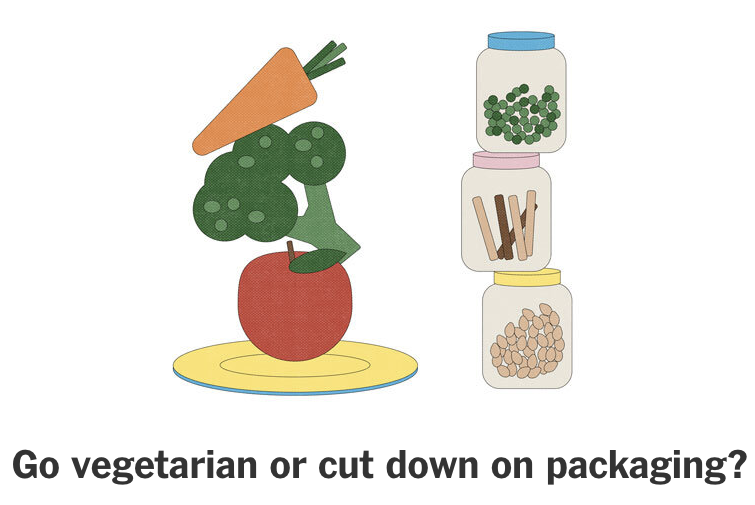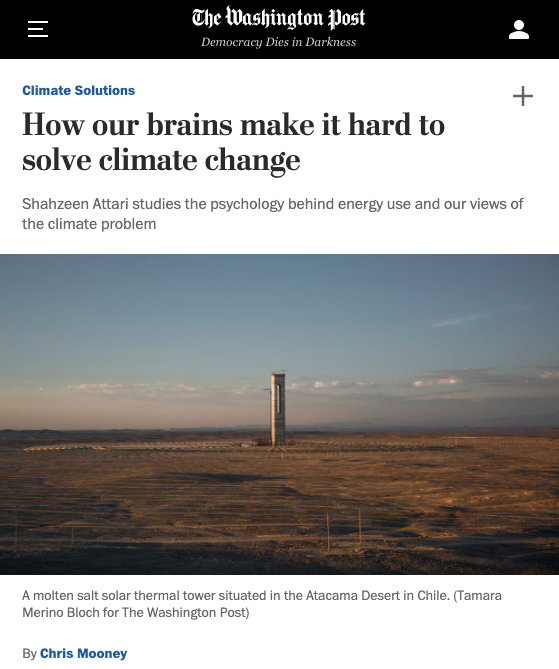More evidence it is not *either* behavior or policy, but we (need and) can have both. Or as Elke would say: “Three cheers for silver buckshot”
Abstract: A successful climate movement must make progress on two fronts: widely adopting behavior changes to reduce emissions and achieving structural changes through climate policy. Some research has suggested people might see sustainable behavior as a substitute (rather than a complement) for climate policy. Does reflecting on sustainable behavior strengthen or undermine climate policy support? In the present research we find that reflecting on sustainable behavior rarely harms policy support. It only occurs when policies are framed as having costs fall on individuals (rather than industry) and when reflection on one’s behavior is not connected to one's values or identity. Here, people may reject a policy because they feel they already are taking action. Conversely, reflecting on behaviors in connection to one’s values or identity actually increases climate policy support, and leads people to feel that policies like a carbon tax, even if personally costly, reflect their values and identity.
Work with Gregg Sparkman and Elke Weber.




















